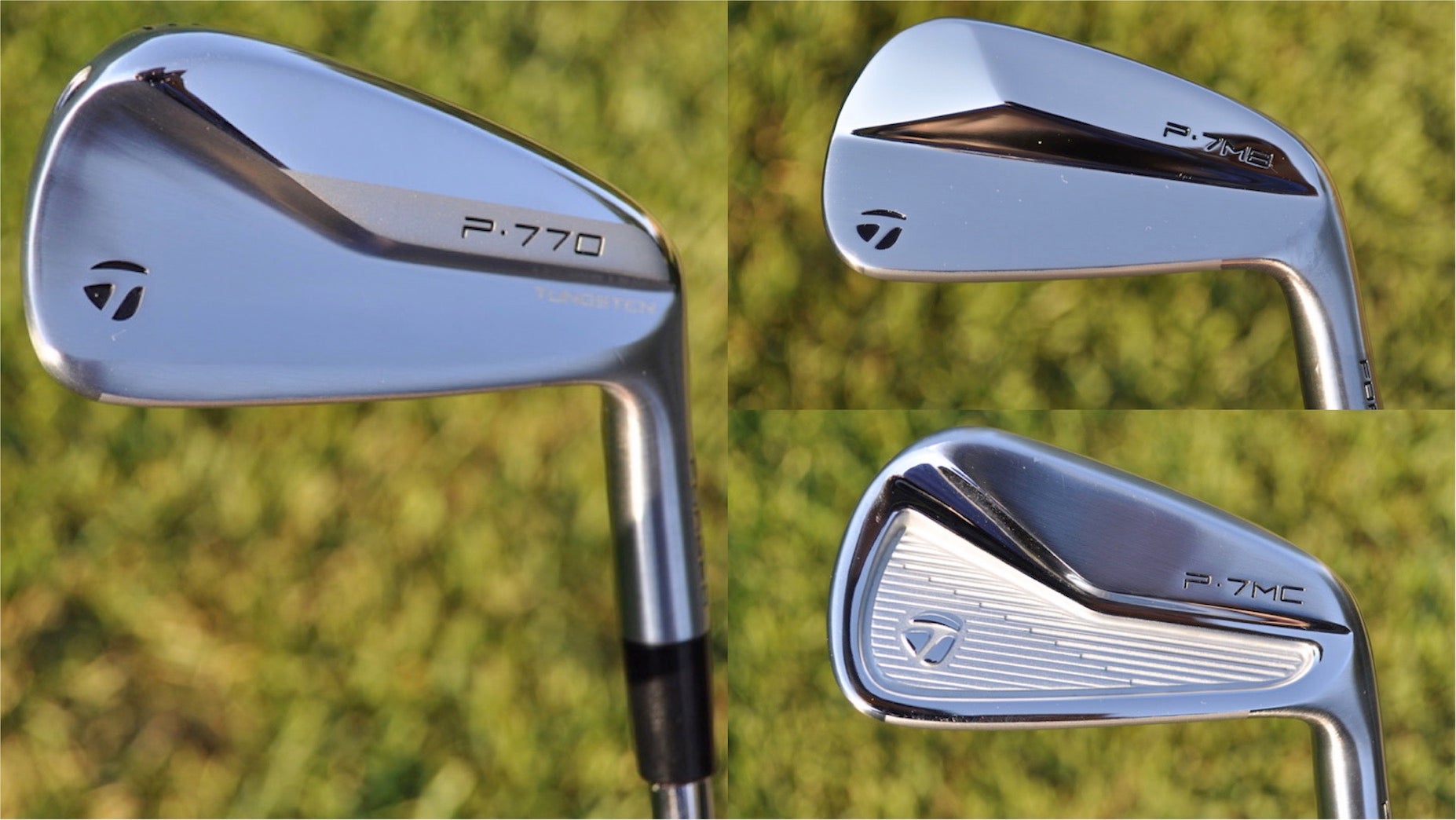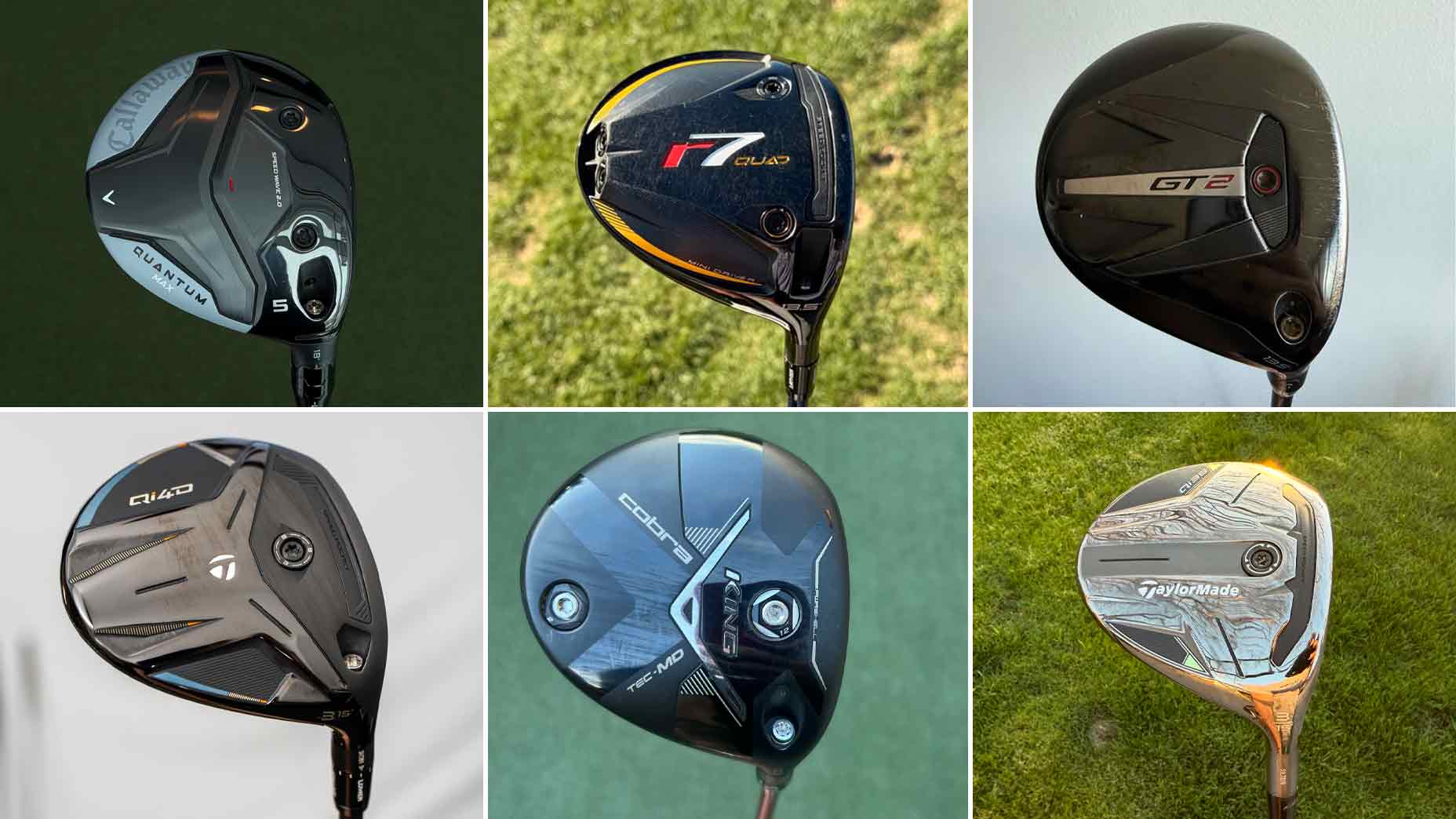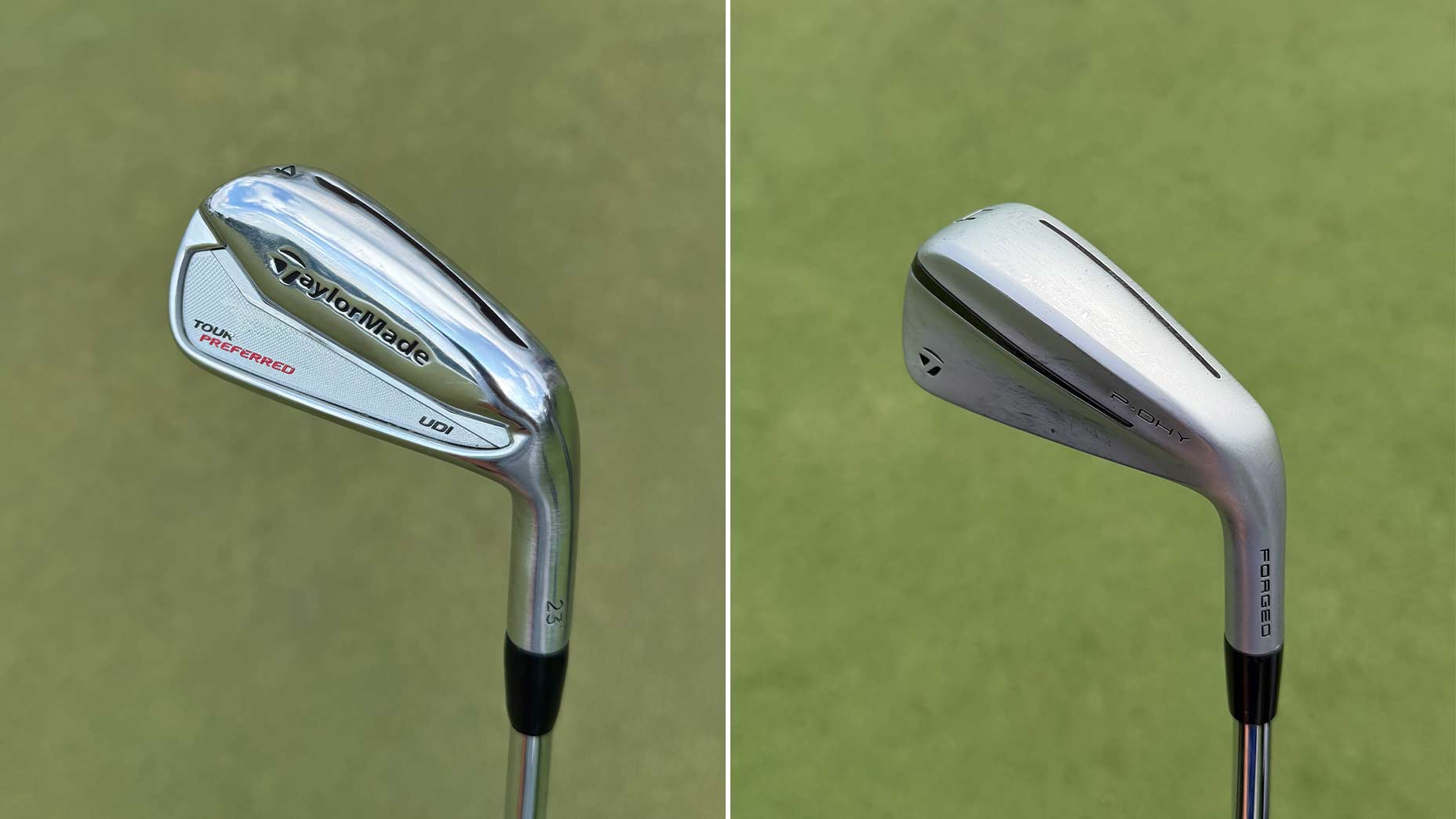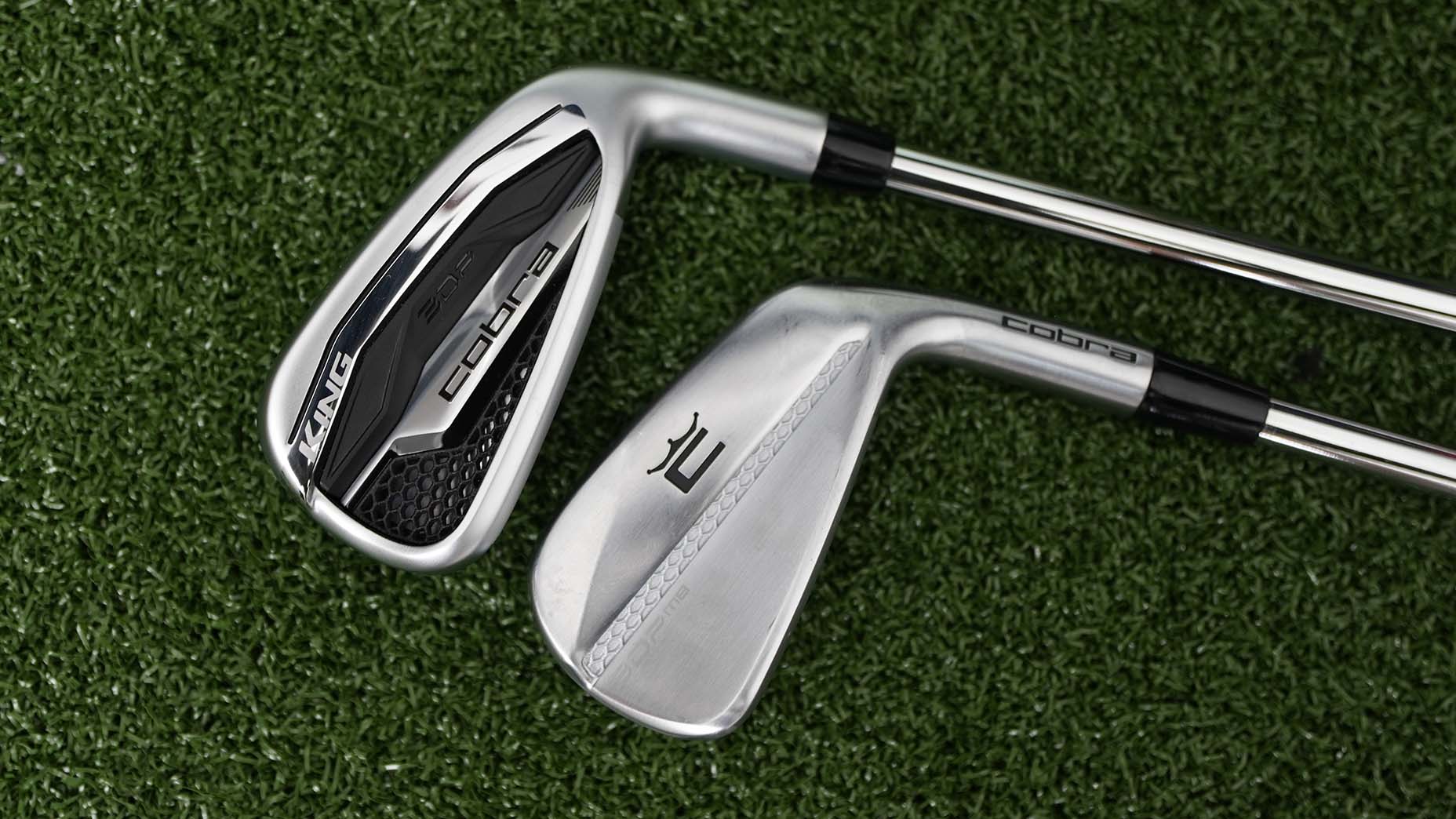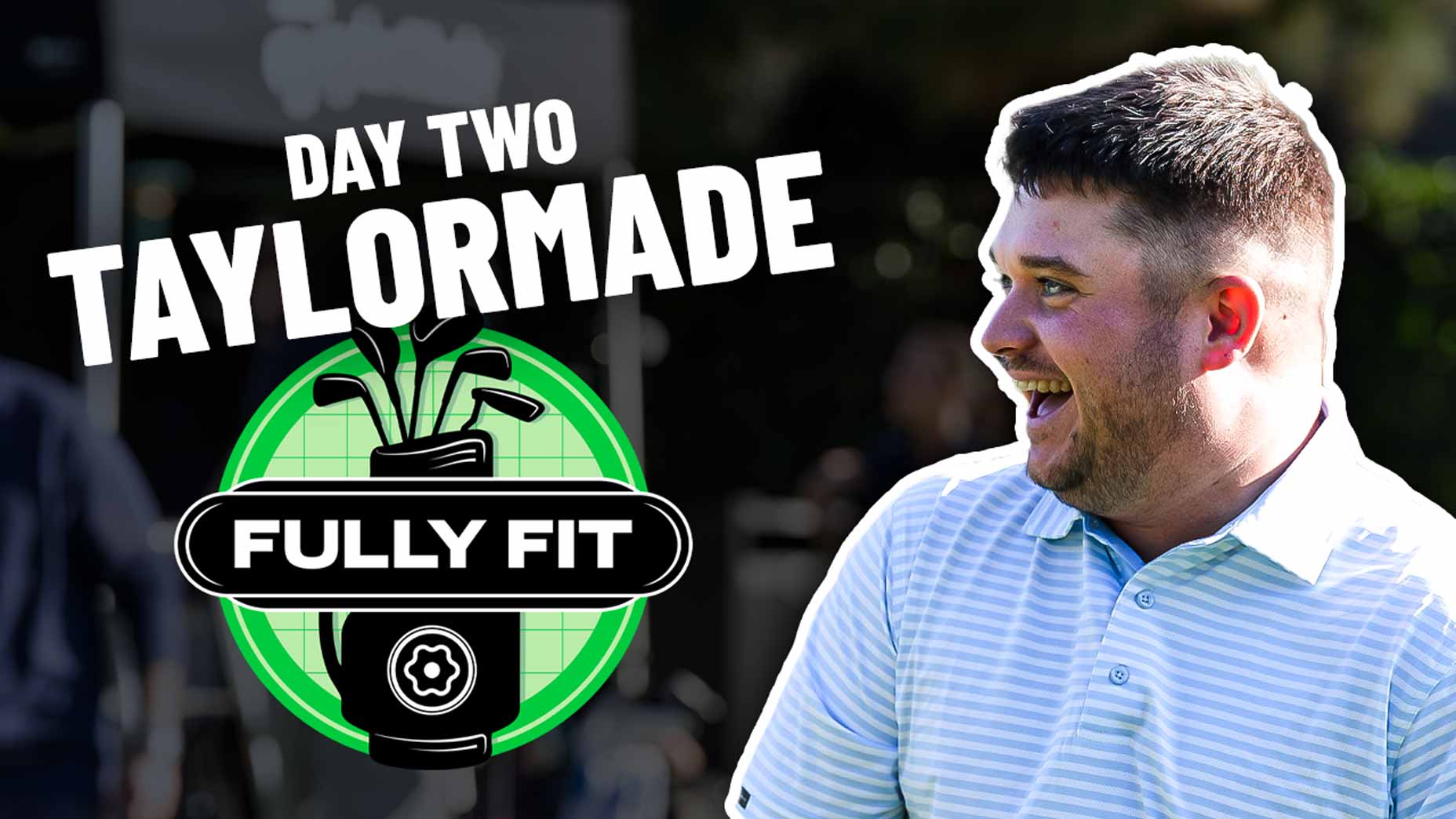Back in August, TaylorMade officially launched three new P-series irons, consisting of the P7MB, P7MC and P770 models. The irons are already in the bags of tour players around the globe, including Rory McIlroy (P7MB), Matthew Wolff (P7MC), and Tommy Fleetwood (he uses P770 long irons).
Given the quick tour presence and overall hype around TaylorMade’s new P-series irons, we had to put them to the test on a launch monitor. Recently, GOLF.com’s Senior Equipment Editor Andrew Tursky (2-handicap), and 8AM Golf content creator DJ Lantz (0-handicap) hit each of the three irons at True Spec Golf in Scottsdale on a Foresight Sports GCQuad launch monitor.
FIRST LOOK: TaylorMade’s new P7MB, P7MC and P770 ironsBy: Andrew Tursky
The goal of the video was to determine how the three different irons stack up against each other in the lineup, and hopefully help arm golfers with more information about the new products. Check out the video at the top of the story to see the results of our test, or keep reading for a brief rundown of what to expect from each iron.
As a reminder, each of these irons are currently available at retail for $1,399 per set.
TaylorMade P7MB
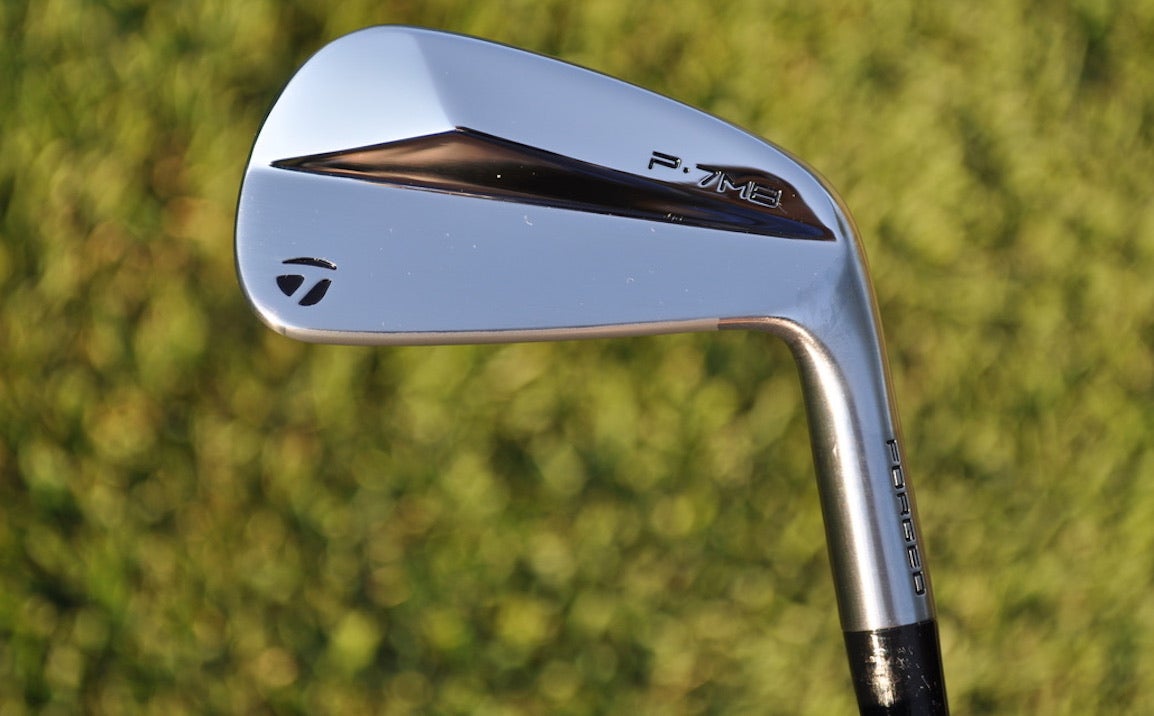
Like any true blade, the new P7MB irons have thin toplines, narrow soles, reduced offset and small overall shapes. Additionally, the back cavities are made with geometries to add mass behind the hitting the zone.
The P7MB irons are forged from 1025 carbon using TaylorMade’s new Compact Grain Forging process, and they’re designed after Dustin Johnson’s P-730 prototype irons.
These irons are for better players who value spin control and workability.
Click here for more info on the P7MB irons.
TaylorMade P7MC
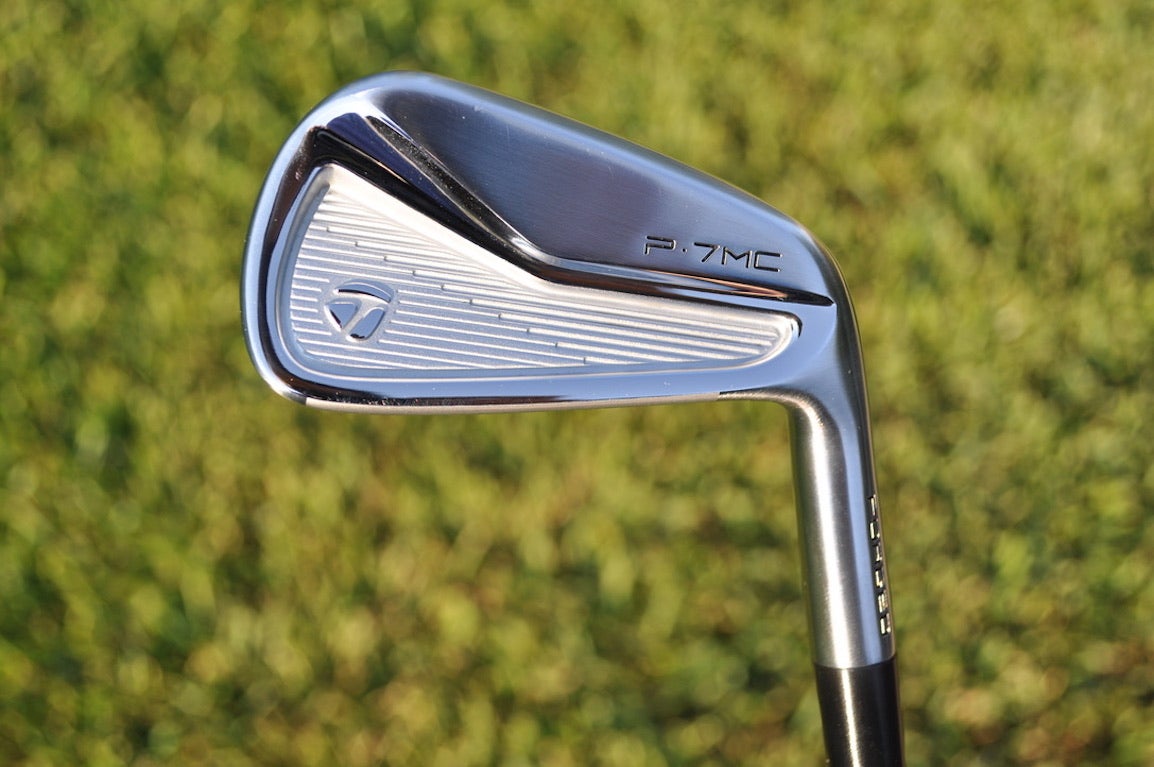
Like the P7MB irons above, the P7MC irons are also forged using TaylorMade’s new Compact Grain Forging process. They also have a very similar look at address. The difference is, however, that the P7MB irons have a bit more forgiveness built into the iron by way of a slightly thicker topline and more perimeter weighting.
The new P7MC irons are designed based on the popular P-750 irons, which are employed by Collin Morikawa and Jon Rahm. Matthew Wolff also played the previous P-750 irons, but he recently switched into the new P7MC models.
These irons are for better players, but there’s a bit of added forgiveness.
Click here for more info on the P7MC irons.
TaylorMade P770
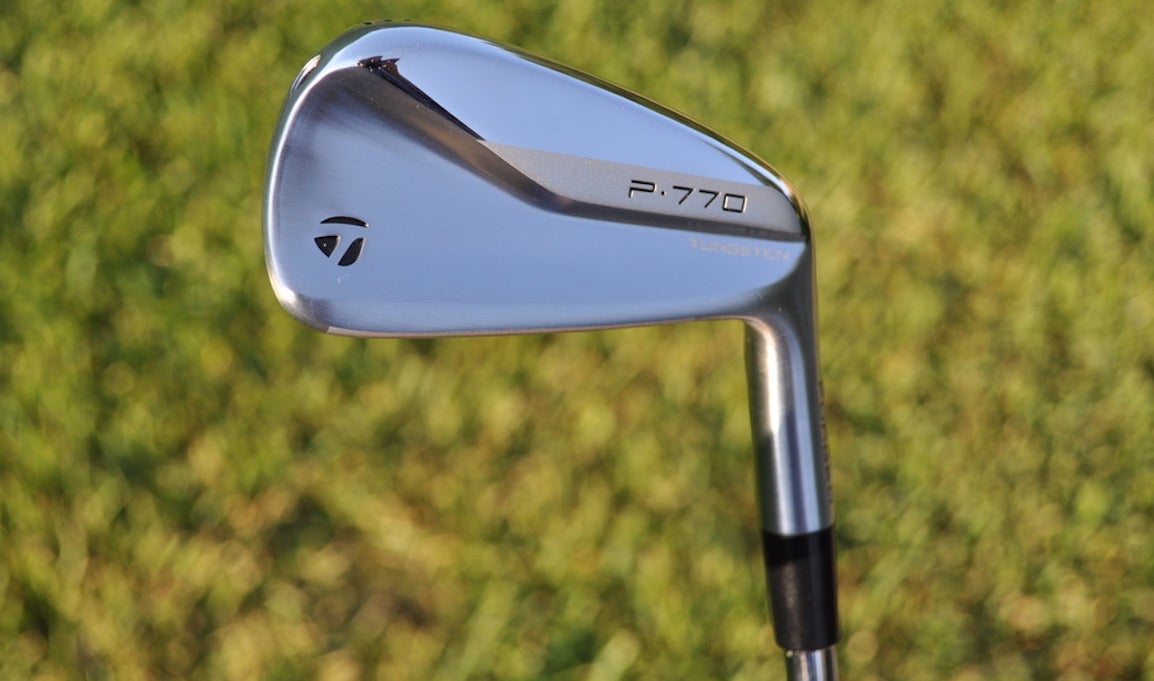
The new P770 irons are similar in design to the company’s popular P790 irons, except the new P770 irons come in a smaller overall package to appeal to better players.
The P770 irons have hollow-body constructions with forged faces, and SpeedFoam injected between the bodies and faces to assist in feel, sound, durability and speed. Compared to the P790 irons, the P770 irons have shorter blade lengths, thinner toplines and narrower soles.
These irons are expected to be the longest and lowest-spinning amongst the three new irons we tested. Given their speed and forgiveness technologies, the P770 irons are also expected to have the most broad appeal for amateur golfers of the three irons.
Click here for more info on the P770 irons.
For more on the latest gear news and information, listen to our latest Fully Equipped episode below!
